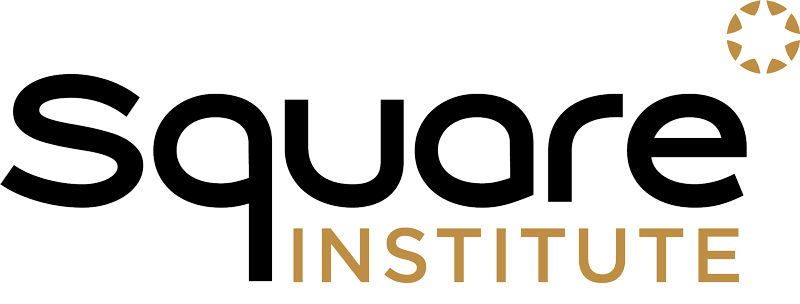
AGEFI
– Juillet 2023
The Blockchain shook the banking industry and contributed to the increase of big data in this sector. Indeed, one of the biggest advantages of the Blockchain is to allow any participant on the network to have a value-exchange interaction of crypto or any other digital assets with any other participant without relying on intermediaries. In banking and financial sectors, Blockchain shows potential to save costs through reduced transaction and processing costs but also the development of new financial services.
We’ve seen that the standardization of Blockchain industry solutions can eliminate friction in transactions, reduce back-end costs and labor hours and increase the number of transactions but expand its application in the banking industry with developments of Blockchain-based currency, lending, termdeposits, clearance and settlement systems.
On the other hand, part of the attraction of cryptoassets is avoiding the need for a central register and institution, enabling safe and simple transactions between two parties without an intermediary which will support developments of new services in custody, trading solutions, crypto-asset term deposit, credit lines, etc. and extend highly-bespoke solutions that range from simple digital wallets to a complex array of functionalities intended to satisfy institutional investors.
Among them, we can foresee premises of Know your customer (KYC) Due Diligences processes emerging from financial companies and third-party providers. However, even though Blockchain technologies have significantly evolved, the regulation in the sector doesn’t seem to progress at the same pace which brings risks in terms of KYC and Anti-Money Laundering (AML) and highlight the need of regulations to bring transparency and customers’ protection in this domain. This article aims to describe the challenges that face the crypto-assets and Blockchain industries on a Compliance perspective, especially the AML and KYC aspects, and potential requirements for the implementation of a regulation.
Compliance & Regulation, a Blockchain’s dilemma
From the regulator’s perspective in Europe, the European Commission is of the view that crypto-assets are not sufficiently covered by the European Union (EU) financial regulation which creates a dilemma. Indeed, as consumers are offered with “Decentralized Finance” (DEFI) products, consumer protection and market integrity concepts from a compliance point of view must be raised. If the Blockchain is supposed to render compliance process much easier, faster with data made available to each link of the chain. We should acknowledge that it won’t avoid the Financial Institution (FI) to commit to its Regulatory obligations and commitments towards the authorities which is to go through the process of KYC.
We also need to mention another dilemma point, namely the GDPR regulation. This situation raises the question of how far the GDPR can be made applicable Anonymity may not survive the recent push for more regulation, but the permissioned sharing of
some customer information may well benefit the financial ecosystem and make it more appealing to industries that have avoided Blockchain so far.
The proposal of an AML regulation on transparency of crypto asset transfers(1) aims to gather in-depth data about the sender and receiver of the assets which means that applicable regulations on wire transfers should be extended to crypto asset transfers
between service providers and un-hosted wallets and so, ensure traceability, so as to be able to better identify possible suspicious transactions and if necessary, blocking them.
Financial Institutions’ Services providers will have to implement regulatory requirements because even though not yet officially enforced for Blockchain and crypto-assets, not complying with regulations such as: AML, MIFID II, GDPR, FATCA, PSD2 might result in fines that the service providers would like to avoid at all costs. Another down-side is that more and more players are willing to be regularized by the authorities which will render the required KYC processes versus applied KYC processes more costly with a direct impact on the profit margins. Though, as there are no global standards, KYC practices vary by the institution which will lead to some challenges such as redundant work and limits the ability for different financial institutions to collaborate to verify identity.
Another challenge for EU Regulators’ will be to be cautious in the adoption of MICAR regulation. Indeed, it will be important to reassure DEFIs players by having a legal framework that does not pose obstacles to the use of new digital financial instruments
but strengthen compliance and operational risk management to ensure the development of new technologies.
The perspective…
The benefits of Blockchain implementation in the financial services industry is the potential to lower the costs associated with financial services. Also, by creating trust between third-party entities and facilitating information transfer through means that did not previously exist, Blockchain can enable collaboration between financial institutions and strengthen the banking industry’s role as a trusted intermediary.
As crypto-assets expand, it is more and more mandatory for financial institution to set up AML and KYC measures in order for clients to remain compliant with their local regulation but also be protected against financial crime and lastly to bring trust in this industry that is still very volatile. Although the confidentiality of exchanges is emphasized, crypto-assets transactions can be traceable and trackable on the Blockchain, KYC procedures with identity verification at client onboarding, client monitoring and ongoing screening are solutions that could help meet Compliance requirements in terms of due diligence. With the need of reliable solutions, we believe that Blockchain technology can provide the required answer. One of the possible approaches being to integrate KYC procedures in Blockchain which could revolutionize customer identity protocols, create a viable path to increase the reliability of crypto-assets and reduce Anti-Money Laundering “AML” & Combating the Financing of Terrorism “CFT” risks.
Surely, dialogues and consultations between both Blockchain developers and financial sector should considered useful for regulators. Indeed, in the time we hear about, discussion of MICAR EU regulations, development of Euro digital, etc. Concerns such as
client’s protection & confidentiality, AML CFT Due diligence in the the Blockchain, etc. are to be tackled and clarified by our regulators thanks to the input of the all the participants of the value chain.
Sources
https://ualresearchonline.arts.ac.uk/id/eprint/15629/1/Blockchain.pdf
https://www.europarl.europa.eu/legislative-train/theme-a-europe-fit-forthe-digital-age/file-crypto-assets‑1?sid=01–2022
https://www.protocol.com/newsletters/protocol-fintech/crypto-kycblockchain?rebelltitem=5#rebelltitem5
https://appinventiv.com/blog/custodial-vs-non-custodial-wallets/Blockchain
in the Banking Sector: A Review of the Landscape and Opportunities(harvard.edu)
https://cryptoactu.com/appel-des-acteurs-crypto-pour-un-traitement-equitable-du-secteur-au-sein-de-lue/
https://www.jumio.com/kyc-blockchain/
https://blog.chainalysis.com/reports/what-is-aml-and-kyc-for-crypto/
https://medium.com/techskill-brew/blockchain-in-kyc-verification-knowyour-customer-67aeb57984e7
https://www.consilium.europa.eu/en/press/press-releases/2022/06/30/digital-finance-agreement-reached-on-european-crypto-assets-regulation-mica/
https://www.elsewhen.com/blog/analysis-how-are-crypto-exchanges-tackling-onboarding/
https://www.consilium.europa.eu/en/press/press-releases/2022/06/29/antimoney-laundering-provisional-agreement-reached-on-transparency-ofcrypto-asset-transfers/
https://www.bnymellon.com/us/en/insights/all-insights/cryptocurrenciescustody-and-third-party-access.html
https://www.analyticsinsight.net/10-banks-that-have-invested-in-cryptocurrencies-and-blockchain/
Par Cécile Loseke, Project Manager chez Square Management Belgium.
AUTRES ACTUALITÉS EN REGULATORY & COMPLIANCE
De la dispersion à l’alignement progressif
Paru dans Revue Banque.
Quels sont les avantages de la blockchain pour les entreprises ?
Paru dans Finyear.
PER et assurance-vie : des outils d’optimisation fiscale pour améliorer sa retraite
Paru dans la La Tribune.




